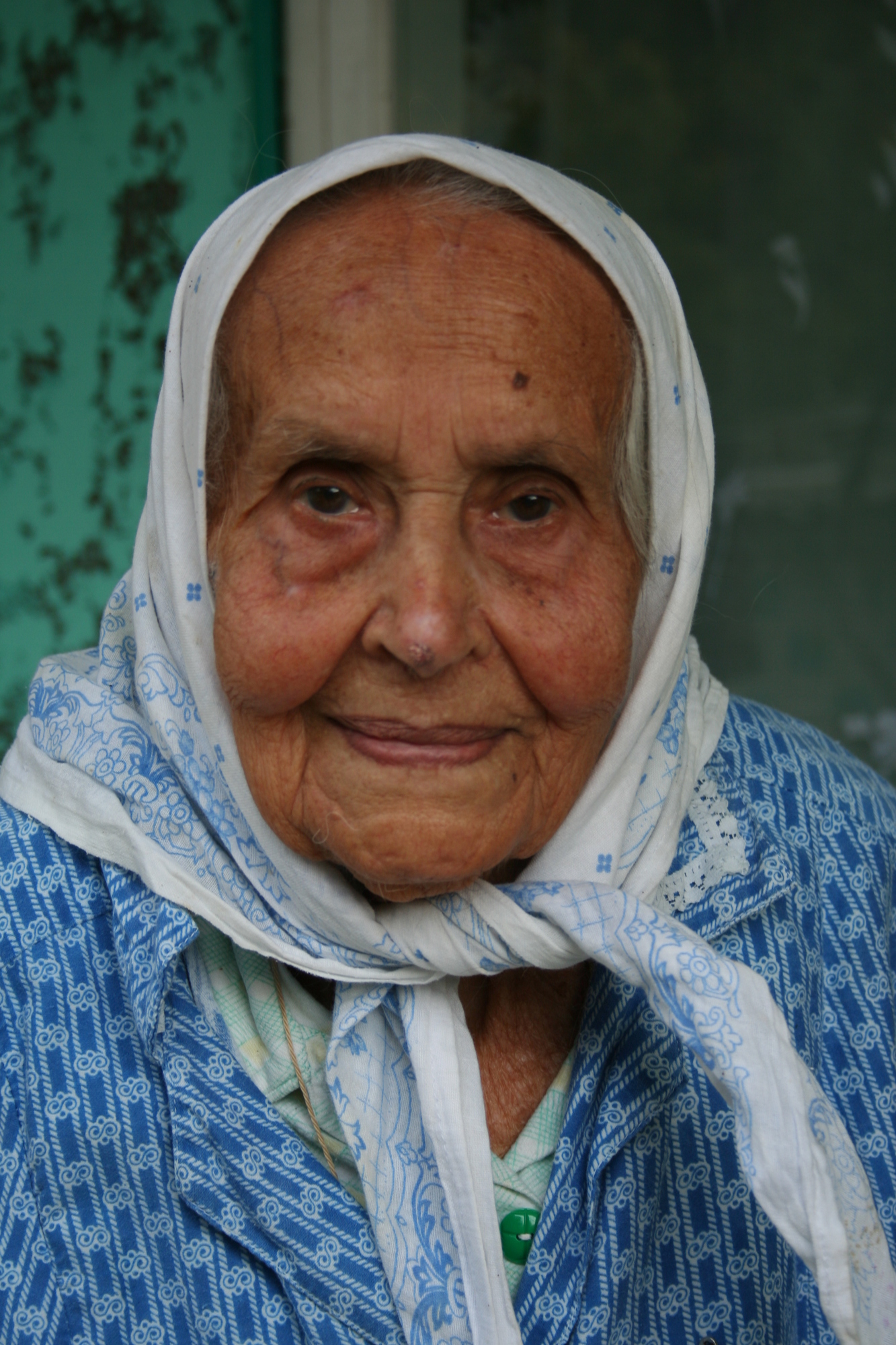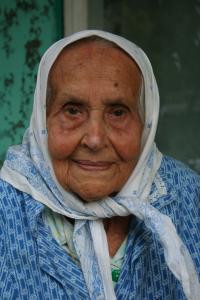„They dug a hole, put them in and buried them alive. Just because she married a Komsomolets.“

Stáhnout obrázek
Anastasie Slaněc was the granddaughter of Czech colonizers, who lived in the Southern Russia territory gained during the Ottoman Empire wars. She was born on May 12th, 1913 in the village of Pavlovka near the town of Anapa. She came from a poor farmer’s family. She got married when she was only seventeen and with her first husband experienced the collective farming period. Her husband was murdered by two runaways in the mountain in 1933. She remarried in 1936. Her second husband was a war veteran. He was badly injured and lost his leg during the WWII battles while serving in the Czechoslovak Army. Her daughter and granddaughter also attended a recording of this event. She died in 2010.
